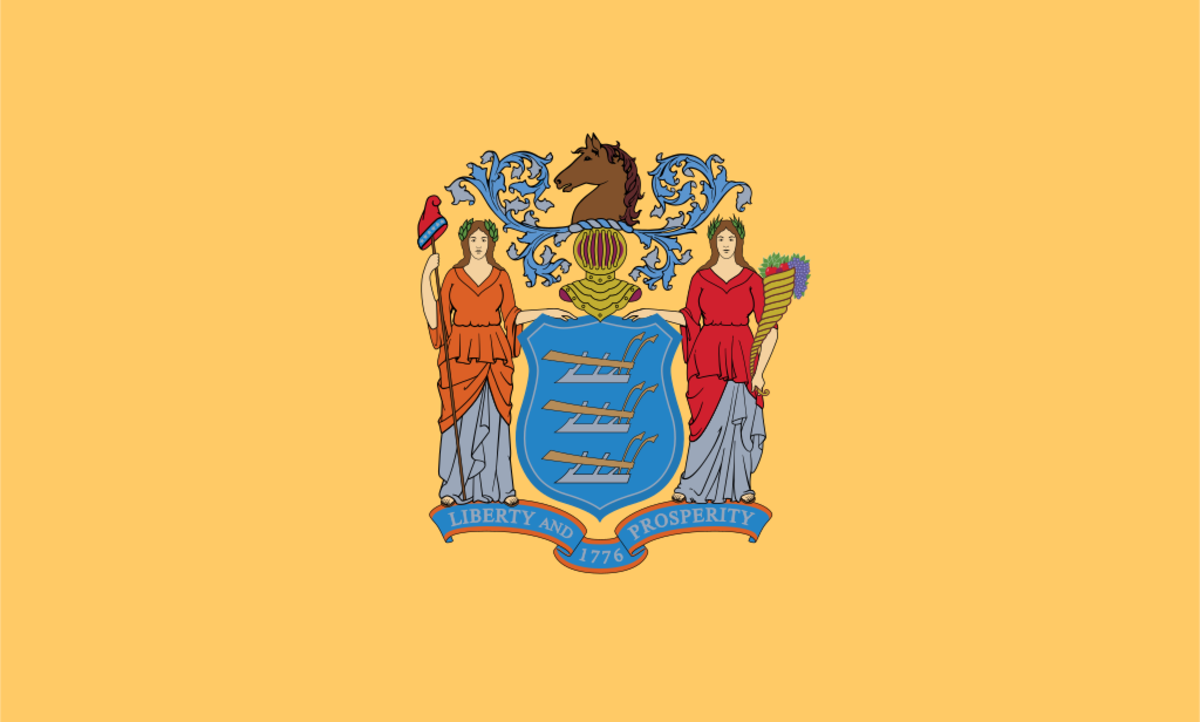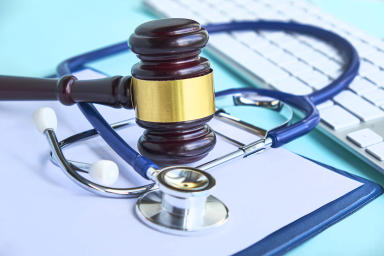New Jersey Medical Malpractice Laws

According to the National Practitioner Data Bank, New Jersey had 249 medical malpractice lawsuits in the first half of 2023, with over $133.22 million recovered. The Department of Health processes complaints against healthcare providers, with issues ranging from failure to diagnose and poor aftercare to surgical errors and misinterpreting laboratory results.
The state’s largest verdict was more than $70 million awarded to the parents of an infant who suffered a brain injury due to the physician’s failure to take action when the endotracheal tube was dislodged. However, the New Jersey Supreme Court overturned this verdict due to various trial errors, including how the expert testimony and the evidence were not considered. This case was also significant because the justices found that the Essex County trial jury was exposed to bias against the defendants.
In light of this, medical malpractice lawsuits may greatly affect the cost of liability insurance rates. This may lead to a worsening physician shortage and an increase in medical malpractice premiums for hospitals in the state, as pointed out by the New Jersey Hospital Association.
Victims of medical malpractice are advised to hire lawyers who can guide them through the complexity of the legal system. These lawyers can represent them in settlement negotiations and litigation and assist in pursuing maximum compensation.
This article aims to help New Jerseyans understand their case, with topics that include establishing liability, who and when to sue, the related costs of filing a claim, and the types of damages they are entitled to obtain.
What Qualifies as Medical Malpractice in New Jersey?
Medical malpractice is a type of professional negligence defined as any negligent act by healthcare providers performed within their employment scope that results in personal injury or wrongful death. These oversight behaviors range from prescription errors and misdiagnoses to surgical mistakes and post-operative care malpractice.
Healthcare providers include any entities that are licensed to provide medical services; thus, victims of medical malpractice have legal grounds to file a lawsuit against healthcare institutions, urgent care providers, and hospitals. For example, individuals who were harmed due to unsanitary conditions and understaffing can sue a hospital’s administration. Meanwhile, those who have sustained injuries from faulty medical equipment can sue manufacturers.
In New Jersey, medical negligence is a legal concept that establishes how healthcare providers can be held liable for the victim’s injuries because of a breach of duty. Negligence is a requirement to have a valid medical malpractice claim, but although they usually correlate, negligence and malpractice are different from one another.
For instance, plaintiffs who only proved the defendant’s negligent act but did not connect it to the sustained injuries may not be able to successfully recover compensatory damages. To be successful, they have to prove that the defendant’s negligence resulted in the injuries and losses.
Personal injury law governs cases involving bodily injuries or mental and emotional anguish caused by someone else’s fault. These cases include medical malpractice, motor vehicle crashes, dog bites, and premises or product liability.
Who Can You Sue for Medical Malpractice in New Jersey?
Under the New Jersey Medical Care Access and Responsibility and Patients First Act, victims of medical malpractice can sue the following liable healthcare practitioners:
Physicians.
Dentists.
Nurses.
Medical equipment technicians.
Intensive care paramedics.
Pharmacists.
Surgeons.
Anesthesiologists.
Psychologists.
Medical malpractice victims can also file a lawsuit against these healthcare entities:
Healthcare facilities licensed by the Department of Health and Senior Services, including dementia care homes, public health centers, maternity and outpatient clinics, and rehabilitation spaces.
Psychiatric institutions operated by the Department of Human Services.
Insurance agencies.
Pharmaceutical companies.
Exemptions
In New Jersey, emergency medical technical instructors are immune to civil liability. This means they are not to blame for any injuries a patient may suffer while they perform basic life support services. These services include cardiopulmonary resuscitation, initial wound care, fracture stabilization, and airway clearance.
The Good Samaritan Law states that a county, municipal, or state law enforcement officer is not liable for someone’s injuries in certain situations, such as responding to emergencies and transporting victims to hospitals. For immunity to apply, the officer must have rendered the services in good faith, not have been paid for the services, and not have acted maliciously. The same immunity is also given to individuals licensed to perform any method of treatment and members of volunteer ambulance or rescue squad associations.
Medical practitioners who are not required but must respond to a life-threatening situation inside the healthcare facility are not at fault for any injuries that may result from their actions. However, this does not apply to those with an existing provider-patient relationship before the emergency or if the act involves gross negligence or wanton behavior.
Healthcare providers in New Jersey are not liable for any injuries or deaths if they fail to inform patients of the treatment’s possible consequences if:
The patient was unconscious.
There was insufficient time to inform the patient, as the medical treatment should be undertaken immediately to save the patient’s life.
The medical procedure was performed on those legally incapable of deciding, and the treatment must be immediately undertaken to save the person’s life.
Medical Malpractice Liability Insurance Requirements
Healthcare practitioners in New Jersey are mandated to purchase medical malpractice insurance with deductibles of at least $5,000 per claim. They can also carry policies with deductibles of up to $1 million per claim, limited to $1 million per occurrence, and a $3 million annual aggregate cap.
The average rate of medical malpractice insurance policies depends on the provider’s specialty, history of claims, and location. Those with high-risk specialties, like obstetrics and gynecology surgery, emergency medicine, and anesthesiology, have higher insurance costs.
These policies can protect the at-fault party’s reputation, cover medical expenses for injuries resulting from medical mistakes, and finance legal responsibilities, like settlements when instances of negligence happen.
However, medical malpractice liability insurance does not cover incidents involving illegal conduct, sexual harassment, or medical record alteration.
What Is the Statute of Limitations in New Jersey for Medical Malpractice Cases?
In New Jersey, victims of medical malpractice are given two years, beginning on the incident date, to file a lawsuit against negligent parties. For those who discovered their injuries long after the malpractice, the two-year period will begin on the date the injury was discovered.
Surviving family members of those who died due to medical malpractice must file a lawsuit within two years after the date of the victim’s death. During this period, they must submit a claim against the healthcare provider and a written notice to third parties to the Director of the Division of Medical Assistance and Health Services. The decedent’s surviving spouse, children, and parents, as well as their appointed executors or administrators, have the legal right to pursue lawsuits.
Parents of newborn babies who sustain injuries at birth are required to sue at-fault parties before the child turns 13 years old. Meanwhile, those with children under 18 have to pursue a claim within two years after their 18th birthday. Persons appointed as guardians ad litem can also bring an action to the court on behalf of minor victims.
According to the New Jersey Tort Claims Act, victims of negligent actions performed by healthcare providers working in public hospitals or for government employers are required to submit a notice of claim within 90 days. The notice must be filed with the Tort and Contract Unit of the Department of the Treasury, Bureau of Risk Management.
What Do You Need to Prove in a New Jersey Medical Malpractice Case?
In New Jersey, victims of medical malpractice possess the burden of proof to show that healthcare providers are liable for the injuries. They are required to establish the following elements:
The healthcare provider owed the patient the required standard of care.
There was a violation of this duty of care.
The patient was harmed because of this violation
The patient sustained an injury and is entitled to compensation.
On the other hand, those with pre-existing conditions have to prove the following situations to have a valid medical malpractice claim:
There was a deviation from accepted standards of medical practice.
This deviation increased the risk of harm brought by the pre-existing condition.
The increased risk is a major factor in the patient’s injury.
The defendant is to blame for the stated consequences unless they establish which portion of the victim’s injuries were the result of the pre-existing condition.
The informed consent law in New Jersey allows victims to sue healthcare professionals if they fail to seek informed consent from patients before the procedure. Victims have legal grounds if (a) the undisclosed risk happened; (b) the treatment or lack of treatment was the cause of the patient’s injuries; and (c) the patient would have made a different decision based on the undisclosed information.
Affidavit of Merit Requirement
Plaintiffs are required to submit an Affidavit of Lack of Care within 60 days after the defendant replies to the lawsuit. Licensed physicians or healthcare practitioners are allowed to execute an affidavit or provide expert testimony. They must also meet the following criteria:
They must be a specialist recognized by the American Osteopathic Association or the American Board of Medical Specialties at the time of the occurrence if the defendant is board-certified.
They devote the majority of their profession to general practice, which includes the procedure for the claim basis.
They are a medical professional or instructor at an accredited medical school.
They are not testifying on a contingency fee basis.
How Much Can You Sue for Medical Malpractice in New Jersey?
Victims of medical malpractice in New Jersey are entitled to compensatory damages from liable parties, but several factors may affect their total payouts. These include the severity of the sustained injury, the age of the victim, and the level of negligence by the healthcare provider.
According to the National Practitioner Data Bank report for 2022, the average payout amount in New Jersey is $144,640,050, which is down by 21.4% since 2020.
Individuals who sustained minor or catastrophic injuries due to medical malpractice are advised to seek legal assistance from New Jersey medical malpractice lawyers. The lawyers can calculate damage awards based on the impact of injuries, the strength of evidence, and the medical practice laws and regulations.
Types of Damages
There are three types of damages that medical malpractice victims can recover. One of these is economic damages, which include medical expenses, rehabilitation costs, and lost wages. There is currently no limit as to how much economic damages the victim can obtain.
Another type of damages are non-economic damages, which are for pain and suffering, mental distress, and loss of life quality. There is also no limit for this type of damages, unless the claim is against the government. In this case, the following restrictions apply:
Plaintiffs have the right to pain and suffering awards if they endure permanent disfigurement or permanent loss of bodily function.
Plaintiffs, including child victims, can secure pain and suffering awards if their medical treatment costs over $3,600. They can also calculate future expenses to meet the monetary threshold.
The third type of damages is punitive damages, which are given to punish the defendant for their outrageous actions. The damages are limited to $350,000 or five times the amount of compensatory damages, whichever is greater. A punitive damage trial is only allowed if compensatory damages have already been given and, under the New Jersey Punitive Damage Award Act, if the plaintiff is able to establish that the defendant acted maliciously.
Negligence System
New Jersey follows the comparative negligence system, allowing plaintiffs and defendants to establish the percentage of their liability for the accident. Under this rule, if a medical malpractice victim is less than 50% to blame, their total damage award will be reduced by their percentage of fault. On the other hand, those who are 51% or more at fault are barred from receiving any compensatory award.
Methods of Obtaining Compensation
Individuals with medical malpractice cases can seek compensation through a mutually agreeable settlement or trial. According to the New Jersey Civil Court, plaintiffs have legal grounds for lawsuits if they seek over $20,000 in damages, while those pursuing $5,000 can file a small claim. Meanwhile, most medical malpractice victims in New Jersey prefer settlements over litigation due to their high costs and stressful legal procedures.
How Much Does It Cost to Pursue a Medical Malpractice Case in New Jersey?
Medical malpractice attorneys in New Jersey operate on a contingency fee basis, which means they will only get paid if they win the case. They are also subject to the following structured fees for settlements or jury verdicts:
No more than 33.3% on the first $500,000.
No more than 30% on the second $500,000.
No more than 25% on the third $500,000.
No more than 20% on the fourth $500,000.
A reasonable amount set by the court for the damages over $2 million.
No more than 25% on pre-trial settlement for a minor or mentally incompetent client.
Some medical malpractice attorneys shoulder expenses that occur throughout the filing process, which are then reimbursed when they win the case. These costs include $175 to file an answer to a complaint, $50 to file a motion in a civil suit, and $250 to file a lawsuit complaint.
However, these fees can be waived by the court if the claimant's household income is below 150% of the federal poverty line and if the claimant has no more than $2,500 in liquid assets.
The following are the appellate court filing fees for cases that are appealed:
$250 for a notice of appeal.
$50 for a post-judgment motion.
$50 for a motion to leave appeal.
Legal Resources for Medical Malpractice Victims in New Jersey
The following organizations can assist medical malpractice victims in navigating the legal system and securing the compensatory damages they are entitled to.
Legal Services of New Jersey
Legal Services of New Jersey is an independent, nonprofit organization that caters to the legal needs of low-income individuals, families, and communities throughout the state’s 21 counties. Since 1966, the office has been protecting victims’ rights and securing procedural justice for those facing civil legal problems, including medical malpractice. Interested New Jerseyites can submit their application by contacting 1-888-576-5529.
Central Jersey Legal Services Inc.
Central Jersey Legal Services, Inc., is a not-for-profit organization that helps low-income residents of Middlesex, Union, and Mercer counties. The facility began in 2003 and has since assisted victims of medical malpractice across the Garden State. CJLS helps secure medical records to support victims’ claims and evaluate reasons for denied or terminated health benefits. For more details, contact them at 609-695-6249 for the Mercer office, 908-354-4340 for the Union office, and 732-249-7600 for the Middlesex office.
Essex County Legal Aid Association
Since 1920, the Essex County Legal Aid Association has been protecting the rights of those with household income within 250% of the federal poverty guidelines. The nonprofit organization offers free legal counsel on civil law matters and handles civil cases for immigrants. Applicants can submit their application by calling 1-973-622-0063 or by submitting an online intake form.
Brain Injury Alliance New Jersey
The Brain Injury Alliance addresses the mental and physical health needs of those with traumatic brain injuries resulting from medical negligence and workplace-related accidents. The facility handles the BIANJI CARES program, which targets the patient’s current needs to improve their quality of life. For more information, call 732-745-0200 or visit the BIANJ office at 825 Georges Road, Second Floor, North Brunswick, NJ 08902.
Expertise.com StaffAuthor
Step into the world of Expertise.com, your go-to hub for credible insights. We don't take accuracy lightly around here. Our squad of expert reviewers, each a maestro in their field, has given the green light to every single article you'll find. From rigorous fact-checking to meticulous evaluations of service providers, we've got it all covered. So feel free to dive in and explore. The information you'll uncover has been stamped with the seal of approval by our top-notch experts.




